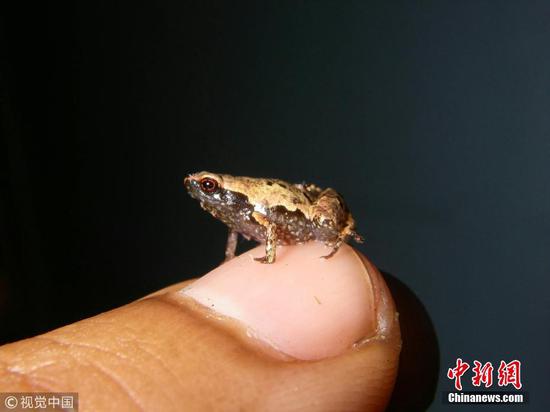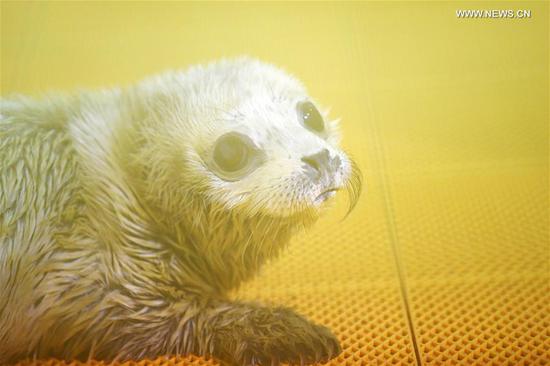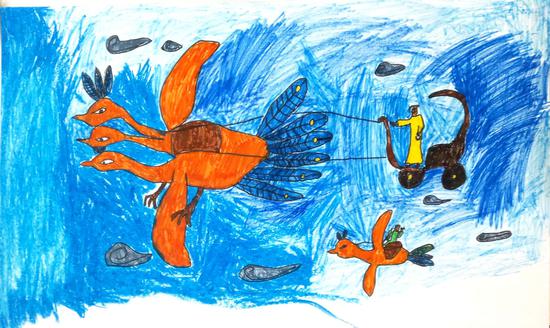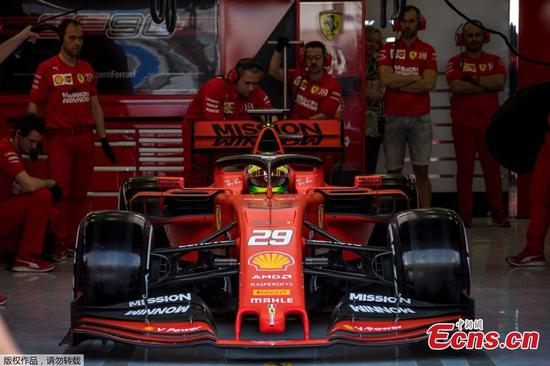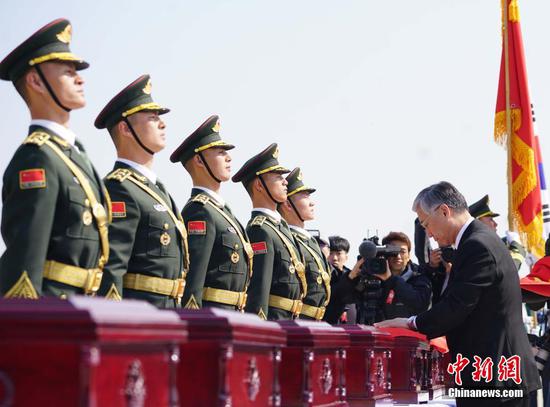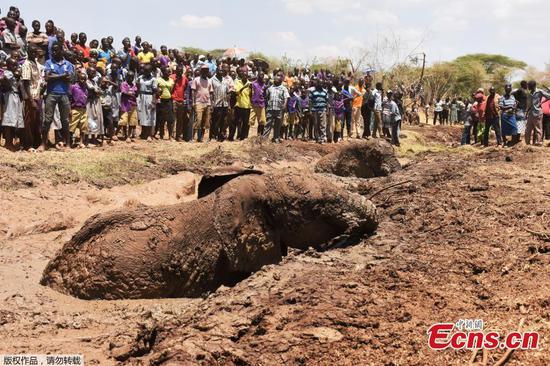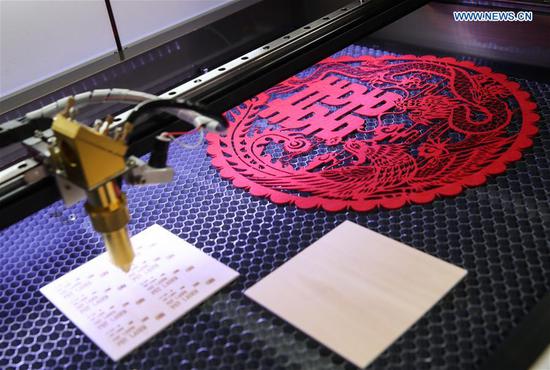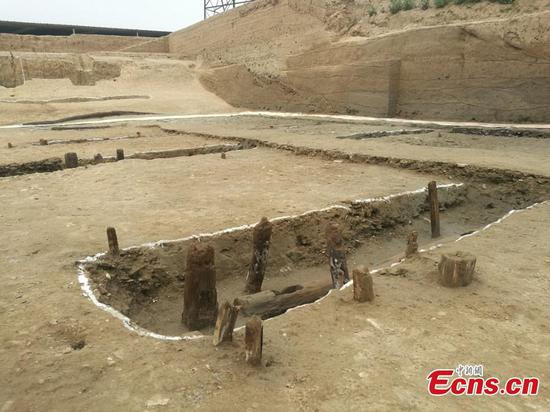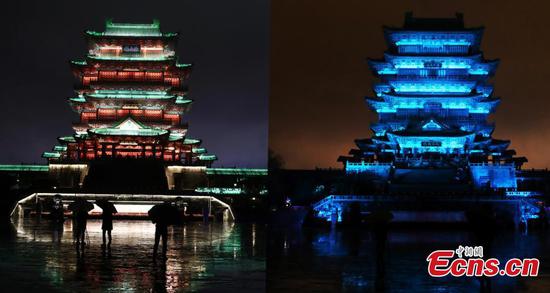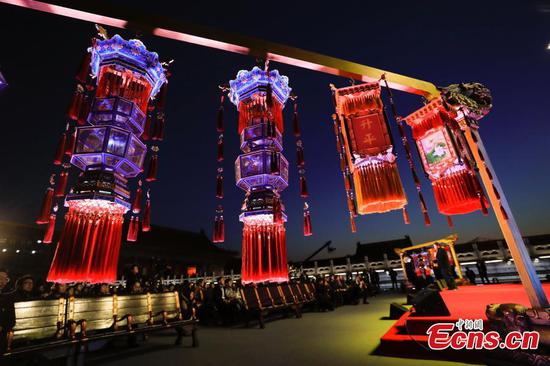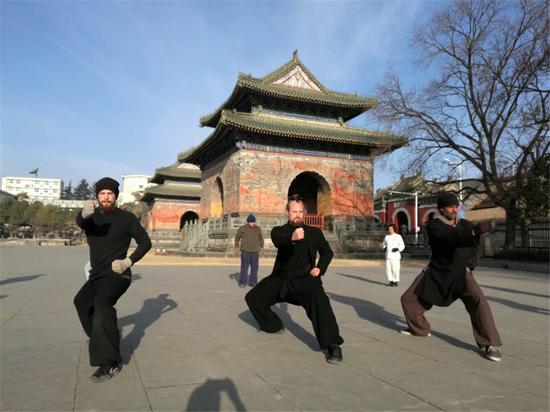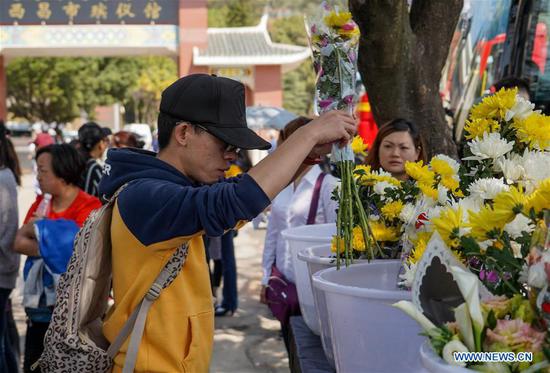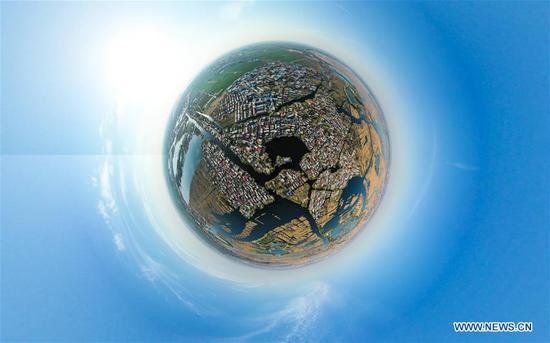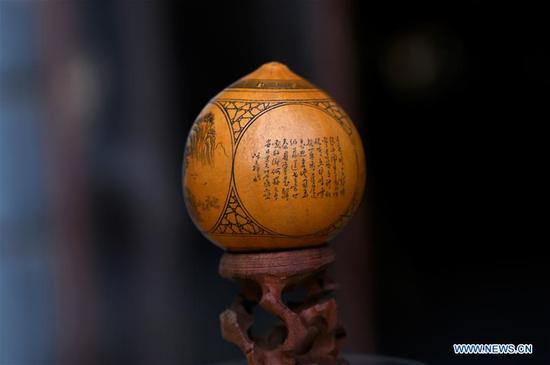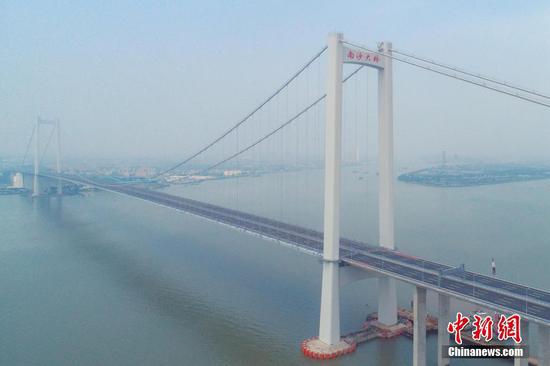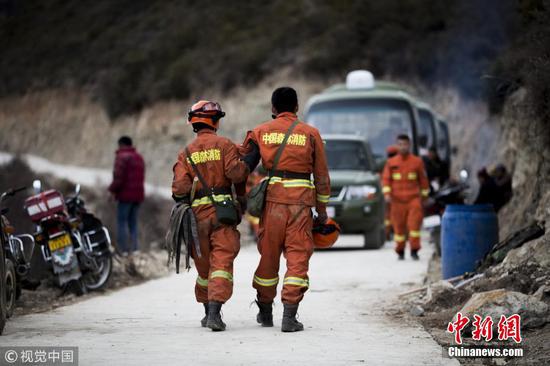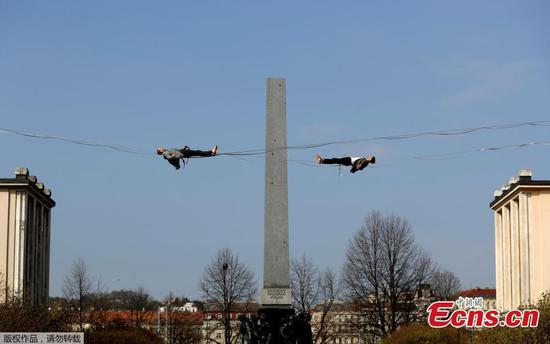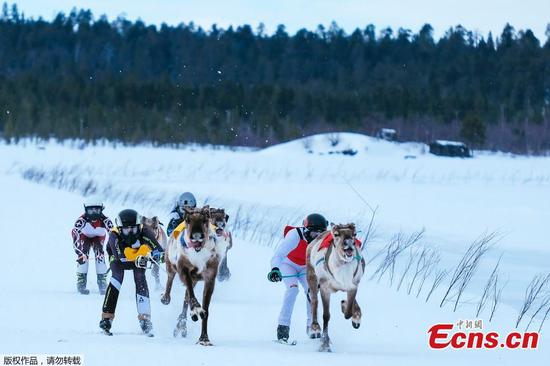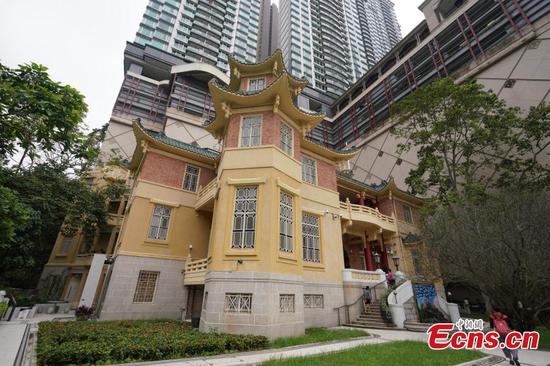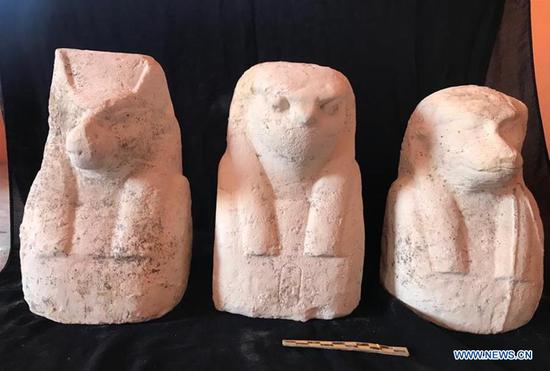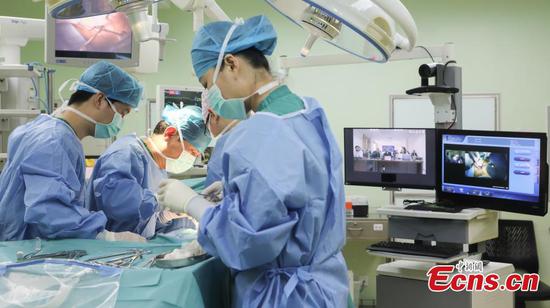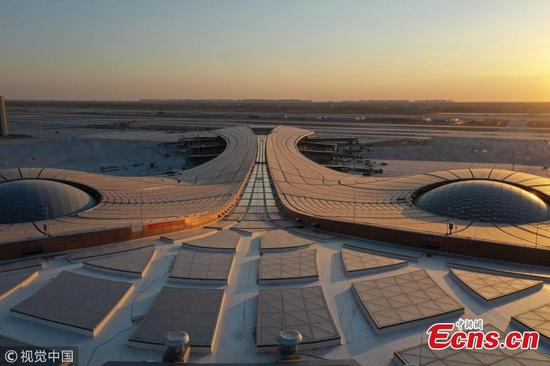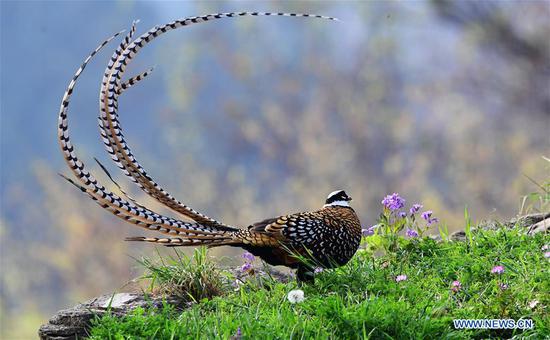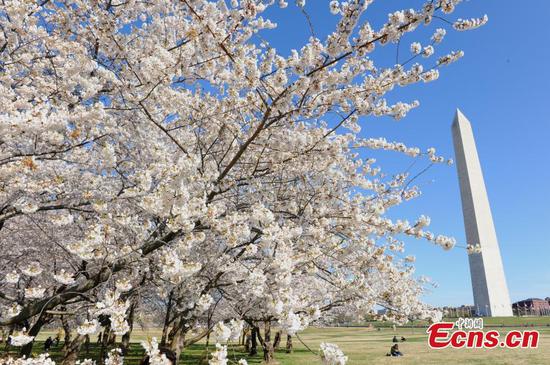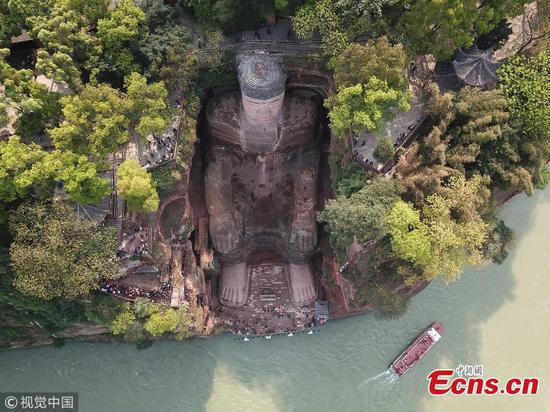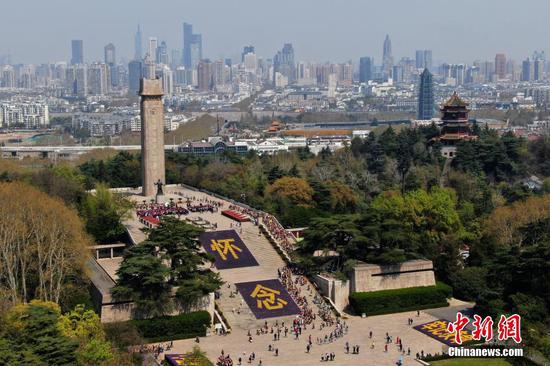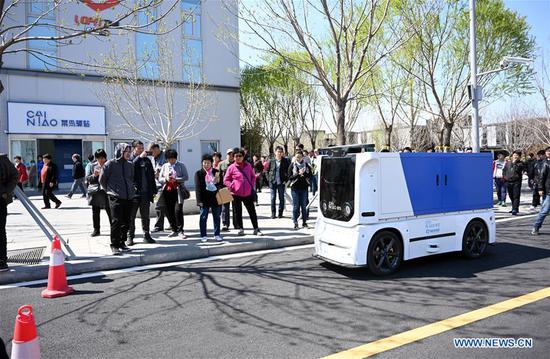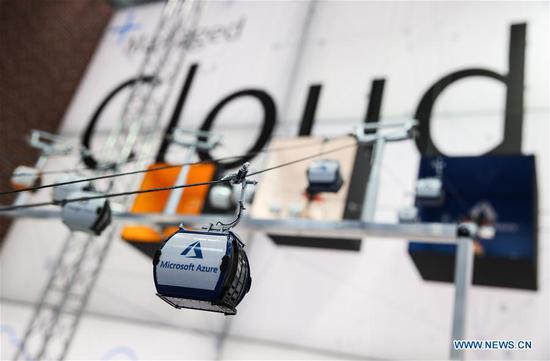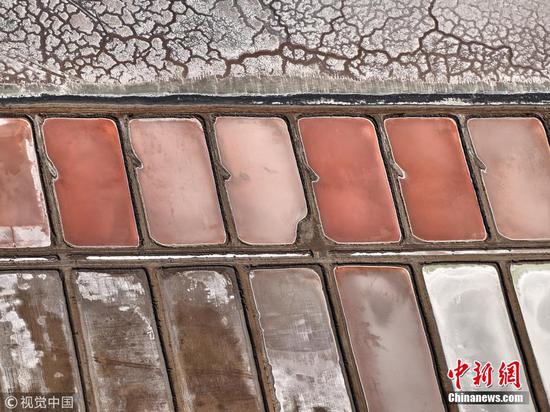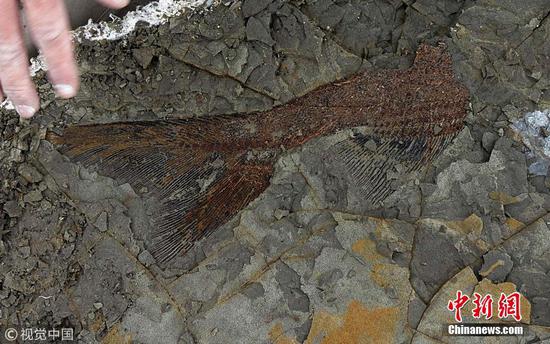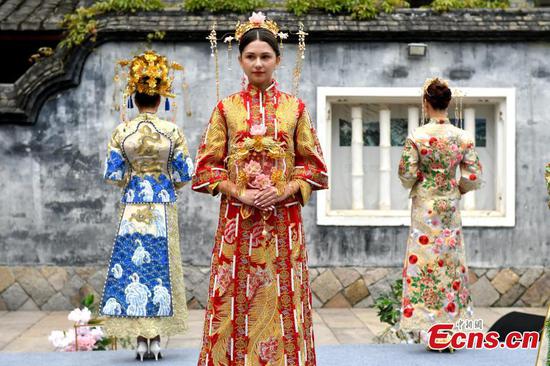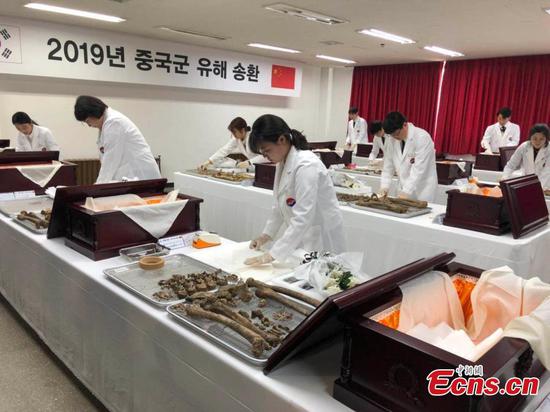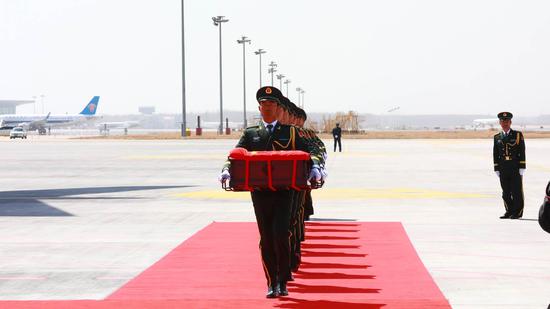
A convoy of PLA soldiers hold the caskets covered in China's national flags to the martyrs cemetery in Shenyang, April 3, 2019. /CGTN Photo
The mood is solemn as military officials look on. A plane carrying the remains and belongings of the 10 Chinese soldiers landed Wednesday noon at Taoxian International Airport in Shenyang City, capital of northeast China's Liaoning Province.
They are returning home nearly seven decades after giving their lives during the 1950-53 Korean War.
The Republic of Korea (ROK) military discovered 15 sets of remains over the past two years in areas near the 38th parallel that bisects the Korean Peninsula.
DNA analysis was conducted, and with the help of outside experts, location and historical context were used to determine the nationality of the deceased. They concluded that 10 of the 15 were Chinese soldiers, three were Democratic People's Republic of Korea (DPRK) nationals, and more tests are needed to identify the remaining two.
The ROK has transferred the remains of 589 Chinese volunteer soldiers killed in the Korean War, including 437 in 2014, 68 in 2015, 36 in 2016, 28 in 2017 and 20 in 2018, respectively.
But this time, a body was discovered inside the demilitarized zone. The DMZ is typically off-limits to human activity. But a recent inter-Korean agreement allowed for work to be done to connect a road through the area.
“For the first time ever, a body discovered at Arrowhead Ridge inside the DMZ was determined to be a Chinese soldier. We will do our utmost to make sure proper respects are given during repatriation,” said the head of the ROK's Ministry of National Defense Agency for Killed in Action (KIA) Recovery and Identification, Jang Yu-ryang.
Arrowhead Ridge was the site of intense battles until the very last days of the Korean War. Thousands of bodies are thought to be unaccounted for along the 38th parallel.
This marks the sixth year in a row that the ROK has handed over the remains of fallen soldiers to Chinese authorities. It's a far cry from the mid-20th century when young troops from China and the ROK fought as enemies.
The ROK defense ministry said in a statement that the transfer ceremony was part of the efforts to heal the scars of the war and conveyed the message of peace to enhance regional peace and stability.
Ties between Seoul and Beijing have flourished since formal diplomatic ties were established in the early 1990s. The two sides are working in conjunction to help solve the nuclear issue on the Korean Peninsula. They forged a free trade deal recently to build on 300 billion U.S. dollars in annual bilateral trade. And the people of both countries are closely linked, culturally and socially.
“The repatriation of Chinese soldiers' remains will be a precious momentum for the both countries to become a long-term friend with a strategic and cooperative partnership. I'm sure if both countries continue to understand each other and make cooperation, we will be able to achieve co-prosperity as well as overcome any difficulties together,” said ROK Vice Defense Minister Suh Choo-suk.
The ministry vowed to maintain cooperative relations with its Chinese counterpart and continue the transfer of the Chinese soldiers' remains for the development of the bilateral relations.
(CGTN's Guan Yang also contributed to the story.)









